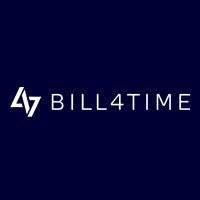Opening and running a solo practice can be an overwhelming experience. You not only have to provide legal services, but you must bring in sufficient revenue to keep your firm running. Plenty of other tasks take up your time, including administrative tasks, collections, and timekeeping.
Small law firm billing software can help you overcome these barriers, manage your time more efficiently, and unlock success. Legal billing software is necessary for firms of all sizes, but it’s especially important for solo practices trying to do more with less time and fewer resources. Software solutions can streamline your billing process to get your invoices out faster and bring in payments to improve your cash flow.
Law Firm Billing Software for Solo Practitioners
In the landscape of legal practice, efficient and accurate billing management is key to success, particularly for solo practitioners who manage their practices independently. Law firm billing software is an indispensable tool tailored to address the specific needs of solo practitioners, simplifying the complex financial processes involved in legal billing and freeing your time to focus on legal matters.
This specialized technology is tailored to provide invoicing, time tracking, expenses, and financial records. With a user-friendly interface and legal-specific tools, you can create, track, and manage your client invoices and record billable hours and expenses seamlessly.
Though traditional, the legal industry is slowly getting on board with legal technology, and the software solutions are only becoming more sophisticated. They integrate with accounting software, collaboration tools, and more, enhancing your overall practice management.
There’s a lot to consider when you’re exploring your options for legal technology, however:
- Features: The legal billing software’s features should align with the needs of solo practitioners, such as trust accounting, time tracking, customizable invoicing templates, and expense management.
- Ease of use: No matter how good the software is, you won’t get anything out of it if you don’t know how to use it. Your options should have intuitive interfaces that seamlessly integrate into your routine.
- Integrations: Software that can integrate with other tools, such as your email or storage tools, minimizes your workload and ensures consistency.
- Compliance: The legal industry has specific rules for billing and trust accounting. Legal-specific technology ensures compliance with these legal and ethical standards.
- Customization: Your law firm may have unique billing needs, so your software solution should adapt to your firm’s requirements.
Assessing Your Specific Needs
The first step in choosing the right legal billing software for your firm is understanding your firm’s requirements and objectives.
Take a close look at your law practice’s workflow and demands. Consider the types of legal services you provide, your client volume, and your billing frequency. This will help you identify the specific challenges you face and the capabilities that matter most in a legal solution.
But as a solo law firm, budget is important. High-end software may have a lot of bells and whistles, but you need a balance between functionality and affordability. Factor the upfront costs, fees, and ongoing subscription expenses to make sure it fits within your budget.
There are several one-size-fits-all solutions on the market, but a tailored software platform is the best choice for your practice to get the most out of your investment. Consider the features that are indispensable to your billing processes, such as time tracking, expense management, client management, and branded invoices. Analyze your workflow to pinpoint the features that will enhance your efficiency.
For example, if you offer alternate fee arrangements, having a customizable solution may be best for you. However, if your practice does a lot of transactional law, expense tracking and automated invoice generation may be most important.
Key Features of Law Firm Billing Software Solo Practitioners Should Look For
Time Tracking Features
Accurate time tracking is arguably the most important aspect of effective legal billing. Your law firm billing software should have robust time tracking features, such as automated timers and labels to separate billable and non-billable time, to ensure you have every moment accounted for.
Precise time tracking offers several advantages for your firm, including billing clients appropriately and fostering transparency and trust. It also helps you understand how you’re spending your time, giving you insights to improve your practice.
There are generally three types of time tracking law firms use:
- Manual time entry: This method involves recording time according to the client or matter by hand, which is flexible but error prone.
- Timers and timer reminders: These features allow you to start and stop timers to work on different tasks. Timer reminders ensure you remember to stop and restart your timers to prevent estimating or losing time.
- Mobile time tracking apps: With many lawyers working on the go, mobile time trackers offer convenience to track your time from your smartphone, which is helpful for client meetings, court appearances, or working from home, and sync it to the centralized dashboard.
Invoicing Efficiency
Invoicing efficiency is an important part of getting paid and maintaining transparency and client trust. Law firm billing software plays a key role in streamlining the invoice process and allows you to focus on your legal work while ensuring accuracy and timeliness. If you’re doing your invoicing manually, you’re likely to waste a lot of time and have errors.
Legal billing software automates and simplifies the entire invoice process. You can generate invoices quickly and consistently to build strong client relationships. There are several invoicing features to consider:
- Customizable invoice templates: This feature offers customizable templates for branded invoices with your logo, colors, and formatting.
- Automated invoice generation: Look for software that can generate invoices based on expenses, time entries, and predefined billing rates.
- Batch invoicing and billing schedules: With this feature, you can generate multiple invoices at once and set up billing schedules for recurring clients to simplify work.
- Online payment processing options: Software that integrates with online payment gateways allows clients to pay their invoices electronically for faster payments and more convenience.
Reporting and Analytics
Every law firm needs to stay on top of their firm’s financial and operational performance to make informed decisions and drive growth, but it’s even more important for solo practitioners. Law firm billing software may offer comprehensive reporting and analytics features to dive deep into your practice’s financials and gain an understanding of performance, efficiency, and client relationships.
These solutions have several reporting features, including:
- Financial analysis reports: These reports provide a snapshot of the firm’s financial health and key metrics like revenue, expenses, profits, and invoices.
- Client and matter analysis reports: These reports provide insights into client and matter performance with billable hours, revenue generated, and overall profitability.
- Time tracking analysis: Detailed time tracking reports show how time is allocated across different tasks to streamline workflows.
When you’re evaluating your software options, consider solutions that have customizable reports to adjust to your needs, integration with your tech stack, and real-time data for the most accurate insights.
Data and Cybersecurity
Functionality matters, but data and cyber security are paramount concerns for all law firms. Your legal billing software not only streamlines operations but secures your sensitive client and firm information.
Like other law firms, you have highly sensitive information like client payment accounts, medical information, or contact details. Having any of this information leaked in a data breach not only leads to legal and financial liabilities, but it can damage your reputation and client trust.
Hackers know that law firms are a prime target for attacks because of the valuable information they hold. Even the American Bar Association (ABA) recently experienced a data breach, highlighting the vulnerability of the legal industry to cyber threats. In this breach, hackers gained access to the ABA’s website and targeted personal information of ABA members.
One of the key features for cybersecurity is user access controls and permissions. These include:
- Role-based access: This provides role-based access controls to grant employees or contractors only the minimum information needed for their work to limit exposure.
- Multi-factor authentication (MFA): MFA ensures that only authorized individuals can access information and data based on more robust security measures than a username and password.
- Data encryption: Data in transit and at rest are at risk of unauthorized access. Encryption converts data into unreadable code to make it difficult to decipher.
Bill4Time uses robust security measures like MFA and data encryption to safeguard your practice’s data.
Cloud-Based Data Storage
Cloud-based storage has revolutionized the way law firms manage information and maintain operational efficiency. It not only manages a wealth of information, but it can address security concerns.
Here are some benefits for cloud-based data storage:
- Accessibility: Cloud storage allows you to access your data from anywhere with an internet connection.
- Scalability: Cloud solutions accommodate the growth of your practice, as you can expand storage capacity as needed.
- Cost savings: Cloud-based storage eliminates the need for maintaining and upgrading physical servers. You only pay for the storage you use.
- Data backup and recovery: Cloud services included automated data backup and recovery features to protect data from loss due to hardware failure or other disasters.
- Collaboration: Cloud storage facilitates seamless collaboration with clients, colleagues, and partners.
- Security: Cloud storage offers better security with features like MFA, encryption, and compliance.
Integration Capabilities
Integration with your other law firm tools is key for streamlined workflows, reduced data entry, and overall practice efficiency. Efficient practice management often relies on synergy between various applications to reduce errors and improve accuracy and consistency.
For example, your legal billing software may integrate with accounting software like QuickBooks, document management systems like Google Drive or Dropbox, and calendar tools like Google Calendar or Outlook.
Best Practices for Implementing Law Firm Billing Software
Implementing law firm billing software is a big step toward a more efficient law firm. It takes planning to transition from your current system to your new software, however. Here are some best practices:
Data migration with existing client data, matters, and financial records to new software.
- User training and support for team members, including features like data entry, time tracking, invoicing, and reporting.
- Customization and configuration to ensure the software is tailored to your firm’s specific needs.
- Tips for a smooth transition:
- Plan ahead: Develop a detailed implementation plan outlining timelines, tasks, and responsibilities.
- Engage your team: Include the team in the software selection process to gather input on the features and functionalities that are essential for your practice.
- Prioritize data quality: Clean and organize your existing data before migration to ensure accurate and consistent records.
- User training: Offer training sessions for your team on both basic and advanced features.
- Data backup: Maintain a backup of your data before implementing the new software to ensure you have a plan in place.
- Test software: Test the software before fully transitioning and address any issues.



 />i
/>i
